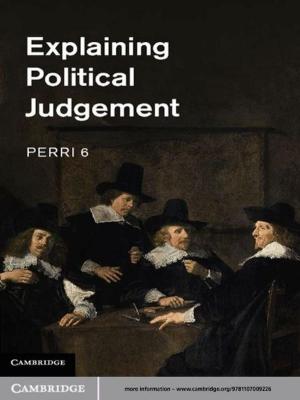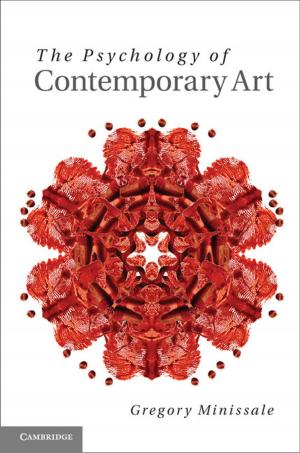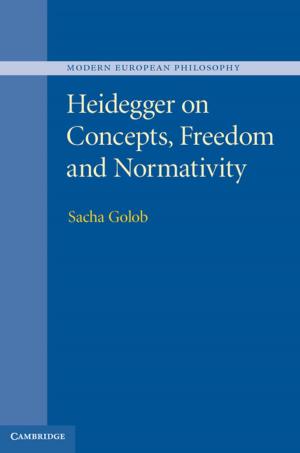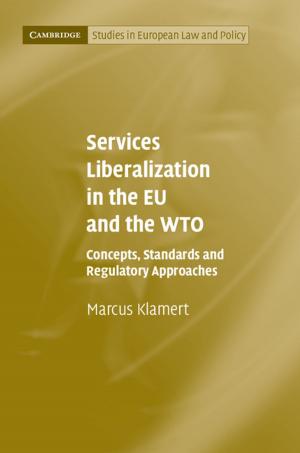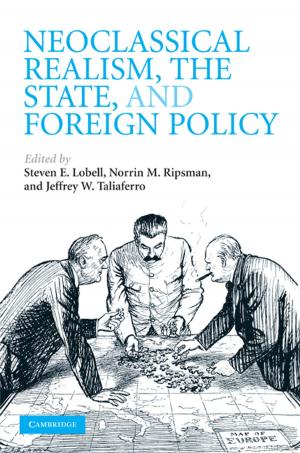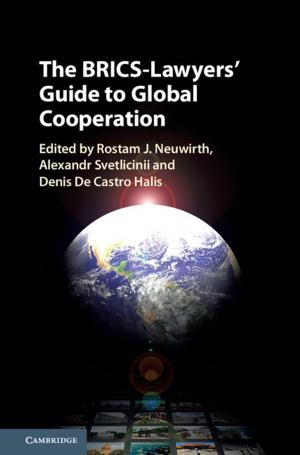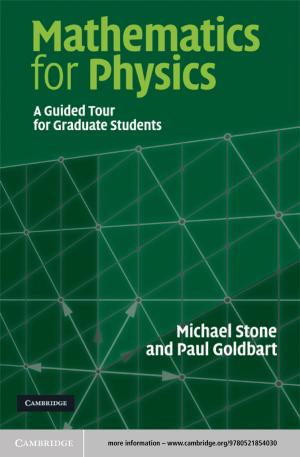The Cambridge Companion to Kant's Critique of Pure Reason
Nonfiction, Religion & Spirituality, Philosophy, Modern, Social & Cultural Studies, Social Science| Author: | ISBN: | 9781139801706 | |
| Publisher: | Cambridge University Press | Publication: | June 14, 2010 |
| Imprint: | Cambridge University Press | Language: | English |
| Author: | |
| ISBN: | 9781139801706 |
| Publisher: | Cambridge University Press |
| Publication: | June 14, 2010 |
| Imprint: | Cambridge University Press |
| Language: | English |
Immanuel Kant's Critique of Pure Reason, first published in 1781, is one of the landmarks of Western philosophy, a radical departure from everything that went before and an inescapable influence on all philosophy since its publication. This Companion is the first collective commentary on this work in English. The seventeen chapters have been written by an international team of scholars, including some of the best-known figures in the field as well as emerging younger talents. The first two chapters situate Kant's project against the background of continental rationalism and British empiricism, the dominant schools of early modern philosophy. Eleven chapters then expound and assess all the main arguments of the Critique. Finally, four chapters recount the enormous influence of the Critique on subsequent philosophical movements, including German Idealism and Neo-Kantianism, twentieth-century continental philosophy, and twentieth-century Anglo-American analytic philosophy. The book concludes with an extensive bibliography.
Immanuel Kant's Critique of Pure Reason, first published in 1781, is one of the landmarks of Western philosophy, a radical departure from everything that went before and an inescapable influence on all philosophy since its publication. This Companion is the first collective commentary on this work in English. The seventeen chapters have been written by an international team of scholars, including some of the best-known figures in the field as well as emerging younger talents. The first two chapters situate Kant's project against the background of continental rationalism and British empiricism, the dominant schools of early modern philosophy. Eleven chapters then expound and assess all the main arguments of the Critique. Finally, four chapters recount the enormous influence of the Critique on subsequent philosophical movements, including German Idealism and Neo-Kantianism, twentieth-century continental philosophy, and twentieth-century Anglo-American analytic philosophy. The book concludes with an extensive bibliography.




